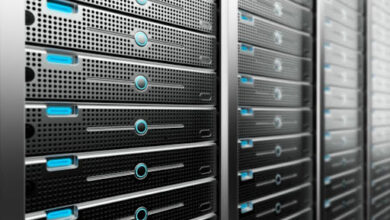The Impact of Nano Machines Ch 1

Nano Machines Ch 1 or nanobots, are a rapidly emerging technology that is revolutionizing the way we think about manufacturing, energy, and healthcare. Nanobots are microscopic machines that are capable of performing intricate tasks with incredible precision and at a fraction of the cost of traditional methods. This article will explore the impact of nano machines in Chapter 1, focusing on the potential benefits, challenges, and implications for the future. We will discuss how nano machines are being used in the fields of medicine, energy, and manufacturing and explore the potential for further development. We will then consider the ethical, legal, and environmental implications of nano machines and their potential for revolutionizing the way we think about manufacturing, energy, and healthcare.
Introduction
Nano machines, or nanobots, are a rapidly emerging technology that is revolutionizing the way we think about manufacturing, energy, and healthcare. Nanobots are microscopic machines that are capable of performing intricate tasks with incredible precision and at a fraction of the cost of traditional methods. This article will explore the impact of nano machines in Chapter 1, focusing on the potential benefits, challenges, and implications for the future. We will discuss how nano machines are being used in the fields of medicine, energy, and manufacturing and explore the potential for further development. We will then consider the ethical, legal, and environmental implications of nano machines and their potential for revolutionizing the way we think about manufacturing, energy, and healthcare.
What are Nano Machines?
Nano machines are microscopic machines that are capable of performing complex tasks with precision and accuracy. They are able to operate at extremely small scales, making them ideal for use in the medical, energy, and manufacturing fields. These machines are typically made up of nanoscale components, such as carbon nanotubes, nanowires, and nanostructured materials. Nano machines are able to operate autonomously, making them ideal for use in a variety of applications.
Nano machines can also be used in a variety of ways. For example, they can be used to create nanoscale sensors that can detect changes in the environment. Additionally, they can be used to create nanoscale robots that can be used for medical purposes, such as performing surgery or delivering drugs. Finally, nano machines can be used to create nanoscale devices that are capable of performing intricate tasks, such as fabricating nanoscale components.
Benefits of Nano Machines
Nano machines offer a number of benefits over traditional methods of manufacturing, energy production, and healthcare. The most obvious benefit is that they are able to operate with incredible precision and accuracy. This makes them ideal for use in a variety of medical, energy, and manufacturing applications. Additionally, nano machines are able to operate autonomously, making them ideal for use in a variety of situations. Finally, nano machines are relatively inexpensive and require minimal energy to operate, making them an attractive option for a variety of applications.
Challenges of Nano Machines
Despite the numerous benefits of nano machines, there are also a number of challenges associated with their use. For example, nano machines are so small that it can be difficult to control their movement and operation. Additionally, it can be difficult to ensure that nano machines are operating safely and within acceptable parameters. Finally, there are ethical and legal issues that must be considered when using nano machines, as there is potential for misuse and abuse of the technology.
Implications of Nano Machines
The implications of nano machines are vast and far-reaching. They have the potential to revolutionize the way we think about manufacturing, energy, and healthcare. Additionally, they have the potential to disrupt existing markets and create new ones. Finally, they have the potential to create new ethical and legal challenges, as well as environmental implications.
Conclusion
Nano machines have the potential to revolutionize the way we think about manufacturing, energy, and healthcare. They are capable of performing intricate tasks with incredible precision and accuracy, and they have the potential to disrupt existing markets and create new ones. Despite the numerous benefits of nano machines, there are also a number of challenges associated with their use, including ethical, legal, and environmental implications. As such, it is important to consider the implications of nano machines and their potential for revolutionizing the way we think about manufacturing, energy, and healthcare.




